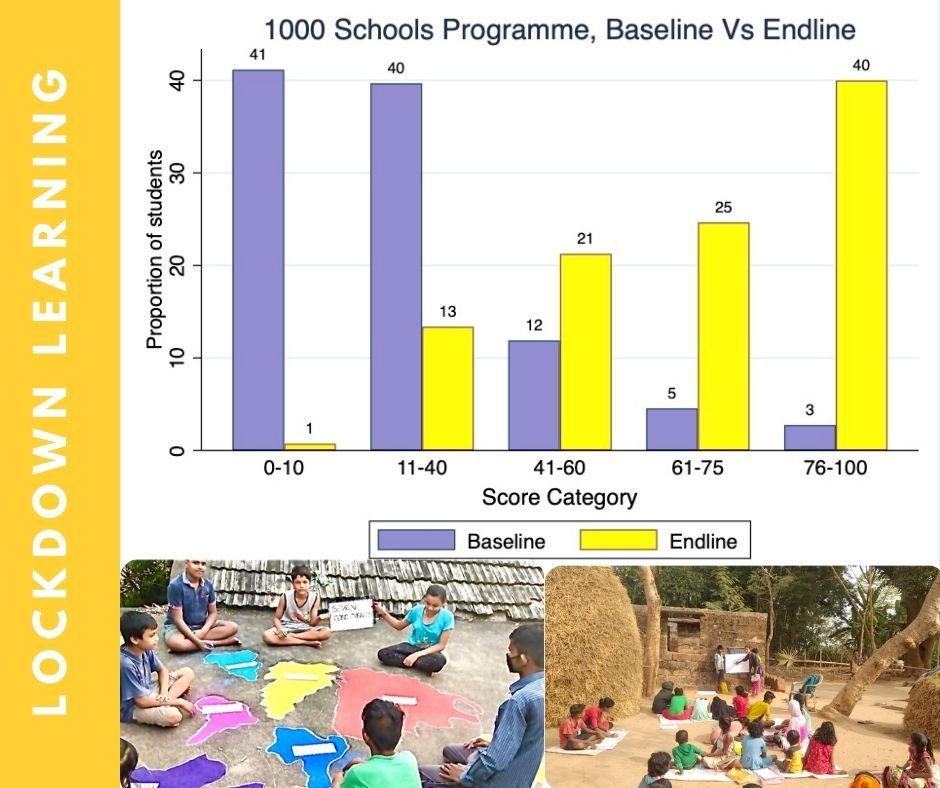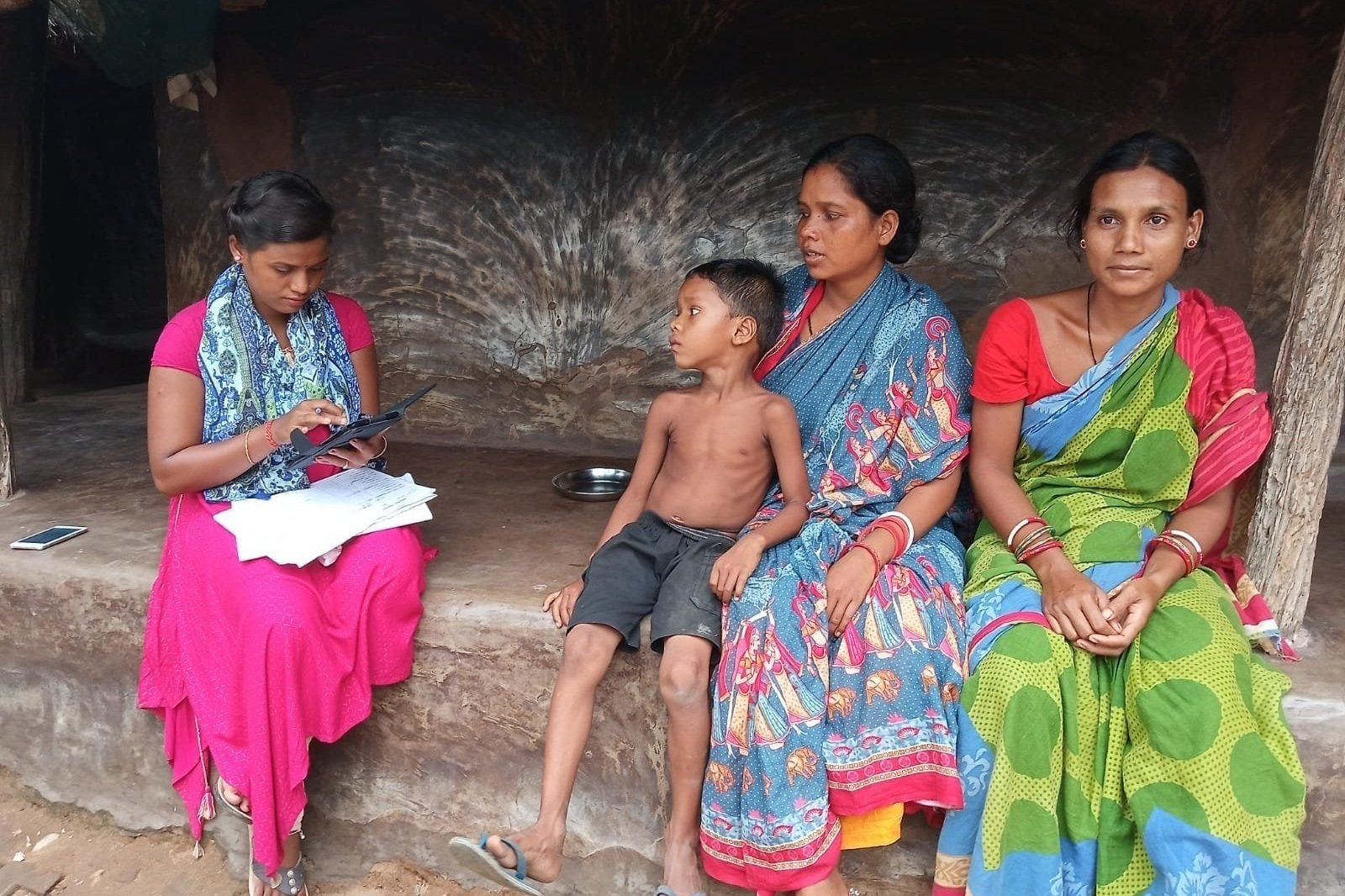
Ongoing and Completed Work
Bridging Gaps: Inclusive Education for Children with Disabilities in Tribal India
Leading a research project focused on children with disabilities and special needs in tribal and indigenous areas of India, aimed at promoting inclusive education. The project explores barriers to education access based on a 280,000-household census in West Singhbhum district, assesses the effectiveness of existing support systems, and collaborates with local communities and administration to develop culturally relevant, inclusive teaching methods. By working closely with schools, policymakers, and disability-focused NGOs, the research seeks to create sustainable solutions that ensure equitable learning opportunities for children in these underserved regions.
AI for All: Empowering Tribal Classrooms
The research will explore how to equip middle-school students from marginalized backgrounds with the necessary skills to understand and engage with AI technologies in an ethical manner. We are piloting a culturally responsive AI toolkit in collaboration with local schools, empowering students to recognize AI's influence in their daily lives and to participate as conscientious consumers and creators of AI systems. This initiative aims to bridge the digital divide by fostering equitable access to AI education, ensuring that these communities are not left behind in the rapidly evolving technological landscape.
Decentralized Fiscal Planning
For democratic decentralization to deliver on its promises, it is imperative for local elected bodies to have sufficient funds, clear-cut functions, and adequate personnel. In rural India, Gram Panchayats* are responsible for planning and implementing Gram Panchayat Development Plan (GPDP), an annual fiscal and financial plan. However, many Gram Panchayats lack the necessary information and resources for effective preparation, planning, and implementation of GPDPs.
Since 2018, tASPIRE has been providing capacity-building training to empower local officials, enabling them to secure additional funds for education, health, sanitation, and women and child development. In 2020, ASPIRE collaborated with the NGO Unnati to deliver a practical and scalable GPDP training program to 253 Gram Panchayats in Odisha.
I partnered with Dr. Margaret Leighton to evaluate the training's impact on plan quality, sector prioritization, and expenditure patterns within the treatment areas. The results indicate that while the training did not affect total planned expenditure, there was a discernible impact on spending priorities. Treated Panchayats demonstrated an approximate 20% increase in expenditure on social sector activities.
Working Paper [Reject and Resubmit at Journal of Development Studies]
*Gram Panchayat: A local self-government structure consisting of a group of villages
Leadership in Education Management
The Right to Education Act, 2009 mandates the formation of School Management Committees (SMCs) in all elementary government schools in India. SMCs are envisaged as decentralized school governance units with active involvement of parents in the school’s functioning.
In 2019, ASPIRE began a capacity building program for SMCs in six blocks of Odisha. SMCs were oriented to monitor the workings of their school and prepare annual School Development Plans (SDP) that address infrastructure gaps, teacher shortages, issues pertaining to academic progress etc.
In the summer of 2021, an in-depth qualitative study of the strategy practices used by SMCs in making a SDP was launched in two public schools. The study is led by Dr. Jeffery Hughes and co-partnered with me, and Dr. Margaret Leighton. The qualitative study focuses on how the training of parents and other SMC members impacts upon their strategy practices for improved school governance and management. An open ended qualitative questionnaire was designed and semi-structured interviews were conducted via phone across the two schools. This research provides a timely analysis of decentralized, open forms of strategy in tackling a strategic meta problem, i.e. quality education provision.
Learning during Pandemic Lockdown
In March 2020, the closure of schools across India disproportionately affected historically disadvantaged and marginalized students. Online classes became the substitute for traditional school learning; however, only 15 percent of rural Indian households have access to the internet (NSO 2017-18).
ASPIRE and Tata Steel Foundation collaborated to design a hybrid intervention, combining digital and physical components, to address this challenge. Self-directed learning tasks were implemented, benefiting 135,000 children in 5,555 villages across rural Odisha and Jharkhand. Primary and upper primary grade students engaged with a comprehensive curriculum encompassing language, mathematics, science, maps, art & craft, gender, climate change, and COVID-19.
Together with Dr. Margaret Leighton, we assessed the impact of the Lockdown Learning intervention on children’s test scores. The results revealed that, over the course of 6.5 months, children enrolled in the intervention witnessed an average increase in test scores of 1.87 standard deviations, with greater improvements observed among those with lower baseline assessment scores. With these gains achieved at a cost of 5.48-7.39 USD per SD, the intervention was extremely cost effective.
[2024] Bhatia, Kartika and Leighton, Margaret. “Teachers on the Move: Evidence from a Large-scale Learning Intervention during Lockdown.” The Journal of Development Studies.
400k Children Survey
In January 2020, my team launched India’s biggest non-government survey of households to assess the well-being and educational needs of children in 11 blocks of Keonjhar District, Odisha. However, three months into the survey, data collection was abruptly halted due to the onset of the pandemic. The survey was re-started in Sep 2021, incorporating a new section to evaluate learning loss during the pandemic-induced lockdown. We surveyed 323,000 households and collected information on 405,168 children of ages 0-17.
This ambitious undertaking involved 420 enumerators, who underwent an intensive five-day training program in data collection utilizing the ODK Collect app. Additionally, we developed an education Management Information System (MIS) to meticulously track school transitions for all 400,000 children up to grade 10.
Phase 1 Questionnaire Phase 2 Questionnaire Survey Training Manual
Enumerator using ODK collect app to survey a respondent in Champua block of Keonjhar, Odisha.
Field Collaborators
My research work would not be possible without the generous participation of hundreds of thousands of survey respondents and tireless work of our hundreds of field staff. I would like to thank the following people for their collaboration, contribution, patience, and creative inputs in the endeavor to generate evidence-driven solutions to development challenges.
Rojaline Mohanty
Field Research Associate
Keonjhar Household Survey; SDP Qualitative Survey
Ravi Kumar
Odisha State program In-charge
Keonjhar Household Survey; Lockdown Learning; Governance Impact Evaluation; SDP Qualitative Survey
Upendra Dandsena
State Learning Program Coordinator
Lockdown Learning
Debabrata Mohanty
Community Facilitator
Keonjhar Household Survey
Ganesh Ganu
MIS Officer
Keonjhar Household Survey
Naresh
Jharkhand State program In-charge
Lockdown Learning; Governance Impact Evaluation; SDP Qualitative Survey
Bijaya Kumar Sahoo
Block Program Coordinator
Keonjhar Household Survey
Ashok Kumar Sahoo
Block Program Coordinator
Keonjhar Household Survey
Najm Mehdi
MIS Officer
Keonjhar Household Survey; Child-tracking MIS
Himangshu Kumar
Data Analyst
Governance Impact Evaluation; Keonjhar Household Survey; Lockdown Learning
Shruti Prasad
RBC Program Coordinator
Keonjhar Household Survey
Lopamudra Sahoo
Field Interviewer
SDP Qualitative Survey
Maheswata Das
Research Officer
Keonjhar Household Survey; SDP Qualitative Survey; Lockdown Learning
Manisha Jha
Data Analyst
Governance Impact Evaluation; Keonjhar Household Survey; SDP Qualitative Survey
Sudama Dehury
Block Learning Coordinator
Keonjhar Household Survey
Basanti Mahanta
Community Facilitator
SDP Qualitative Survey
Leadership and Management Skills
As part of ASPIRE’s Senior Management Team, I was involved in the following organisation building tasks:
Acting MEL Director (6 months)
Hire key staff; Write the Software Requirement Specifications (SRS) for creating a MIS that facilitates effective record keeping, information standardization, and monitoring across ASPIRE’s various programs.
Staff Capacity Building
Engage in mentoring junior staff, providing feedback and support. Quarterly training of field MIS staff in data collection, storage, and reporting.
Communications Outreach
Provide strategic guidance and input for developing the organization’s website.
Grant Writing and Fundraising
Grant writing to raise organisation budget from $5mn pa in 2019 to $10mn pa.
Committee Against Sexual Harassment (CASH)
Chair of the organization wide CASH unit. Investigate complaints and grievances in relation to incidents of sexual harassment.
Guide Operations Team
Provide regular guidance and input to project teams on program planning, budgets, performance targets, measurement and monitoring.
Strategy and Direction
Together with the Executive Director and Senior Management Team, provide strategic direction to the organization. Lead engagement with senior management to develop the evidence architecture for our programs and guide its implementation on the ground.
Partnerships and Network
Seek out collaborations with research units, academia, and state governments to launch new research, showcase our work, and contribute to the discourse around education issues.




